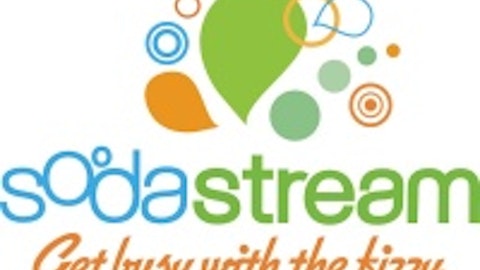On this day in economic and business history…

On the day of the planned spinoff, The Washington Post reported on DuPont Fabros Technology, Inc. (NYSE:DFT)’s impressive scale, noting that the company’s 1911 fiscal-year revenue came to nearly $40 million, of which government-sourced powder purchases comprised less than $3 million. All told, the DuPont Fabros Technology, Inc. (NYSE:DFT) trust manufactured 60% of the nation’s explosives that year — equal to about 150,000 tons. Another interesting Post tidbit:
It is estimated that transporting [the national output of explosives] annually manufactured 5,000 cars are continually in transit. How rarely one meets with an accident can be judged from the fact that in every 1,000 miles a passenger travels he passes 20 cars loaded with dynamite. In all your travels did you ever hear of a car loaded with dynamite exploding?
If only that Post writer could have lived another century to experience Vin Diesel movies. But, at any rate, DuPont Fabros Technology, Inc. (NYSE:DFT)’s dynamite divestiture didn’t slow it down: Three years later the company began making early plastics. By the mid-1920s its chemicals division was highly diversified across paints, dyes, fabrics, fertilizer, and film.
One smoking investment
Before tobacco companies became barbarians at the gates during the buyout-fueled ’80s, they were simply tobacco companies — reliable, cash-gushing portfolio cornerstones for many long-term investors. However, the tobacco industry’s diversification began many years before most investors might remember. One of the most successful volleys of tobacco’s diversification came on June 12, 1969, when Altria Group Inc (NYSE:MO) acquired a majority interest in top U.S. brewer Miller from W.R. Grace & Co. (NYSE:GRA).
Grace had bought its majority interest in Miller three years earlier for $36 million, and Altria Group Inc (NYSE:MO)’s $130 million offer represented a return of 53% for each year Grace had held it. The deal was not without controversy, as Altria Group Inc (NYSE:MO) (then operating as Philip Morris) had swooped in at the last minute to elbow PepsiCo, Inc. (NYSE:PEP) out of the bidding. Grace actually wound up canceling a sale agreement with Pepsi only two days before its sale to Altria Group Inc (NYSE:MO). Had things gone differently, Pepsi might be the undisputed champion of football-party suppliers — what other company could have offered leading brands of booze, soda, and snacks at the same time?
Altria Group Inc (NYSE:MO) didn’t make any major acquisitions again until 1985, when it bought General Foods in what was at the time the costliest non-oil merger in American corporate history. This was the same year that Altria Group Inc (NYSE:MO) joined the Dow Jones Industrial Average, replacing one of its fiercest industry rivals. Altria’s net income grew from $49 million in the year before its purchase of Miller to $889 million the year before it joined the Dow — an annualized growth rate of 19.9%.
Altria eventually sold its majority stake in Miller to South African Breweries in 2002, creating SABMiller plc (LON:SAB) in the process, but the tobacco company retains about a quarter of the megabrewer to this day. That stake was worth $21.25 billion on the 44th anniversary of Altria’s original purchase, which means that Miller has given Altria an annualized 14.1% rate of return for more than four decades of ownership — keep in mind that Altria’s current stake is only about half as much of Miller as it bought in the 1969 acquisition. Not bad for a long-term investment, wouldn’t you say?
The article One Business Empire Lights Up After Another Is Blown to Bits originally appeared on Fool.com.
Fool contributor Alex Planes has no position in any stocks mentioned. The Motley Fool recommends PepsiCo. The Motley Fool owns shares of PepsiCo.
Copyright © 1995 – 2013 The Motley Fool, LLC. All rights reserved. The Motley Fool has a disclosure policy.



